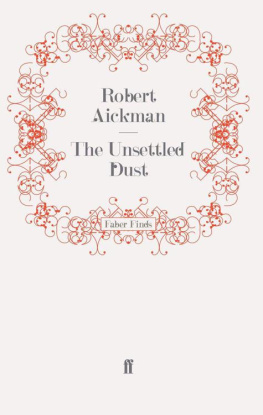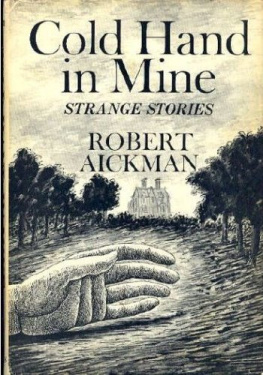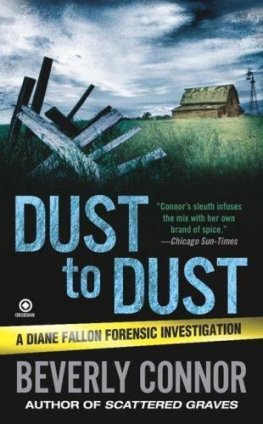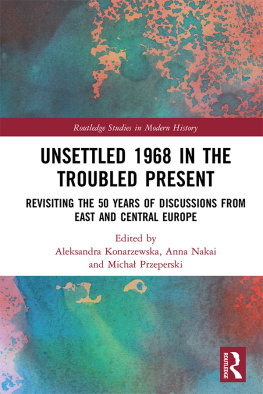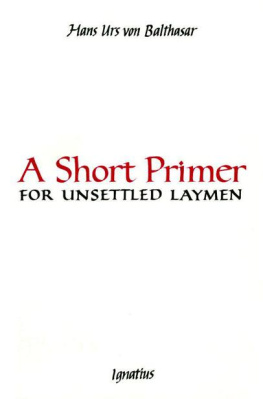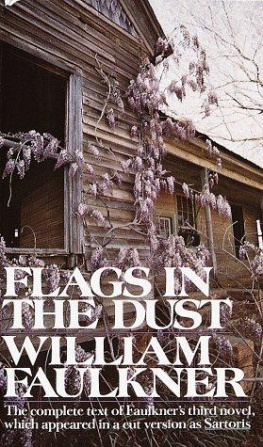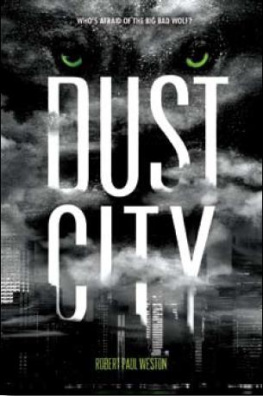ROBERT AICKMAN
THE UNSETTLED DUST
CONTENTS
THE UNSETTLED DUST
During the period of my work as Special Duties Officer for the Historic Structures Fund, I have inevitably come upon many strange and unexpected things in all fields; but only three times that I can recollect have I so far encountered anything that might be thought to involve an element of the paranormal.
Since interest in paranormal phenomena appears to be growing steadily, partly no doubt as an escape from a way of life that seems every day to grow more uniform, regulated, and unambitious, I have thought for some time that it might be worth while to set out at least one of these cases, the most striking, I think, of the three, in an orderly though completely frank narrative; separated from the many other documents connected with my employment. It is not a matter of struggling for half-lost memories, since for the most part the task consists in adapting extracts from my Diary for the period of time concerned. I have now been Special Duties Officer for just over ten years, and I think the moment has come to set about the task.
It so happens that it has been during those ten years that the Fund has set up a Psychic and Occult Research Committee. As is well known, the Council hesitated for many years before taking this step, having in mind the extreme undesirability of the Fund involving itself in controversy of any kind, and also the constant danger of its being charged with crankiness or reaction; but in the end the pressure became so great that a response could no longer be avoided. I think it was inevitable. The link between an interest in old buildings (often ruinous and sometimes ecclesiastical), and an interest in what are popularly called ghosts, is obvious. Also the Fund, like most established voluntary societies, is supported mainly by the elderly. A Psychic Committee was and is as inescapable as the Animals Committee that has been with us almost from the start.
The P. and O. Research Committee has undoubtedly done much good work, but I have hesitated to deliver to them a report of my own, despite the fact that I am possibly in a position to deliver three. The Fund is a very conservative organisation (not in the party sense, of course), and my dilemma is that of the civil servant. If a civil servant takes an initiative and things go right with it, he cannot, in the nature of his employment, look for much in the way of reward; whereas if his initiative goes wrong, he can expect all kinds of trouble, everything from a reprimand to blocked promotion , and a permanent black mark against his name in the files. It is accepted, therefore, that the way to advance in the civil service, or in any field where civil service conditions prevail, is never to take an initiative and never to support anyone elses. It is inevitable that this should be so, as long as we base all our administration on the bureaucratic model. The Fund is not as hard a master as the civil service, of course, if only because no one had to answer to Parliament for its actions; but caution is compelled upon it by its sheer size, and by its obligation to offend no one, if this can possibly be avoided, not even its direct critics. A report, even if carefully edited, delivered by me to the P. and O. people on any one of my three cases could, in my judgement, lead to contention, to unpopularity in various quarters for the author, and conceivably even to a libel action in which the Fund would be involved. There are few subjects on which people are more touchy than the supernatural, as they call it. It is the measure of the importance they attach to it, even if few of them care to admit it. The delivery of such a report would hardly be construed by the Council as lying within my duties, if trouble resulted. One can but speculate upon the mass of important information which never sees the light of day for similar reasons. I have thought it best to confine the circulation of my narrative to a few selected people, binding them in advance to the strictest confidence; and to place a copy for posterity in my small archives.
The position of Special Duties Officer, of which I have so far been the only incumbent, was created when the growth of the Fund, and the number and variety of its properties, conjured up a miscellany of tasks, often urgent, but all outside the scope of any member of a staff which had been recruited almost solely for duties connected with preservation in the strictest sense and which, as was freely admitted at the time, was often by then advanced in service. My ploys have varied from setting up a large bequest of sculpture in a once ducal park, to organising a sailing-boat harbour on an island off the Welsh coast; from a frustrating six months devoted to relaying an ornamental paving, to an even longer period spent in promoting an open-air season of fertility plays with singing and dancing. Most of my work has been done in the open air, trying to dodge the British climate, the local authority Philistines, and the Funds own members, so many of whom have ideas of their own and think they have bought the entire staff with their own small subscriptions. Well, not all perhaps. Some of the members are very nice people, and eager to offer their hospitality. I have had my moments of cynicism, when I have felt that all that has mattered of the Funds work has rested on my single shoulders, but that was mere self-pity and I really know quite well that I have done much better as a Fund officer than I could expect to do in any other job. I fell right on my feet when the Fund engaged me.
The events I am about to describe took place at Clamber Court in Bedfordshire, a seat of the Brakespear family, the family of which one branch is said to have provided the only Englishman ever to be Pope; who was also the Pope with the greatest physical strength of all the Popes. The Clamber Court branch was represented by two unmarried sisters. Their father, the last Lord St. Adrian, had died years before, and their mother was said to have been a little queer ever since. At least that was the gossip around the Fund office. In the end, the girls had settled Clamber on the Fund, but remained there themselves as Fund tenants. The same office gossip said that the girls had lived very wildly at one time, having no one to control them, and had got through a lot of money. Explanations like that might have been true in former times, but there is seldom much in them nowadays. It is far more likely that the Brakespears were orphans of the social storm like most of the Funds clients.
My sojourn in the house had nothing to do with the building itself or the surrounding property, as I shall explain in a moment, but it so happens that I had paid Clamber one previous visit. It had not been in the course of my duties, which do not include any kind of regular round. I went there as an ordinary Fund member, without disclosing anything more. In those early days, I often found it instructive to do this and to note how my colleagues were faring in their endless struggle with the different buildings, often near to collapse even when offered to the Fund; and with the odd and recalcitrant people who lived in them. In those days, the Funds aged President frequently described the staff as an extra-large family, and it was by no means only a clich: one felt the presence of the Fund wherever one went, watching how one behaved, and difficult to get away from. Of course I felt much more at home in a year or two, much more sure of my ground. When it came to my going to places like Clamber Court, it should also be remembered that I had worked at one time in architecture, though I never qualified; and so had an interest in buildings for their own sake. Naturally that is true of many of the Funds staff.
Next page
